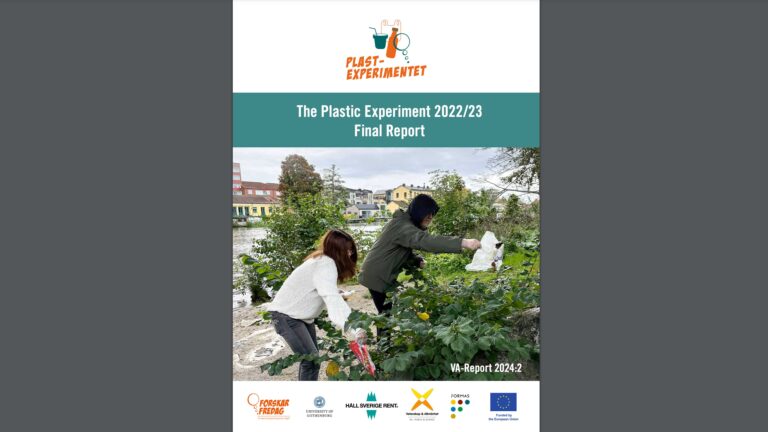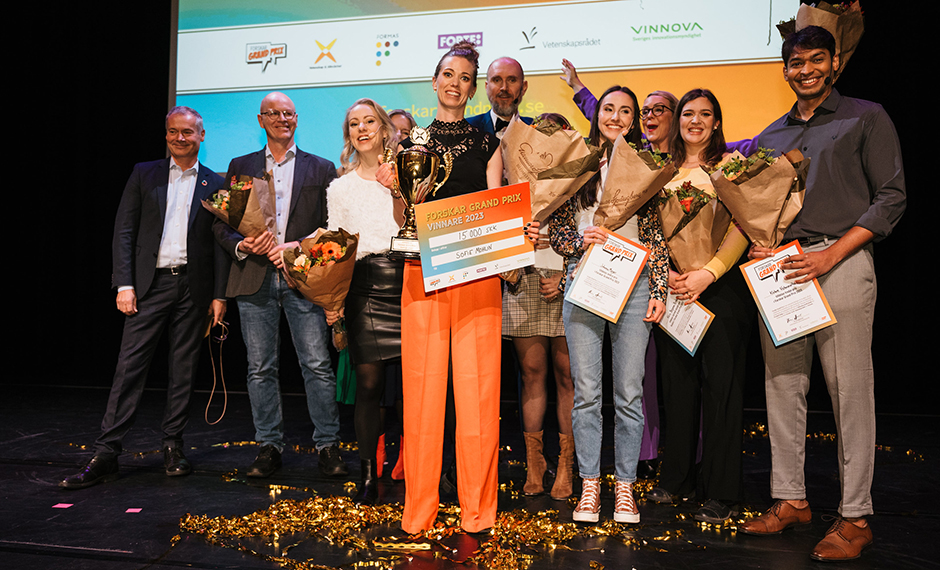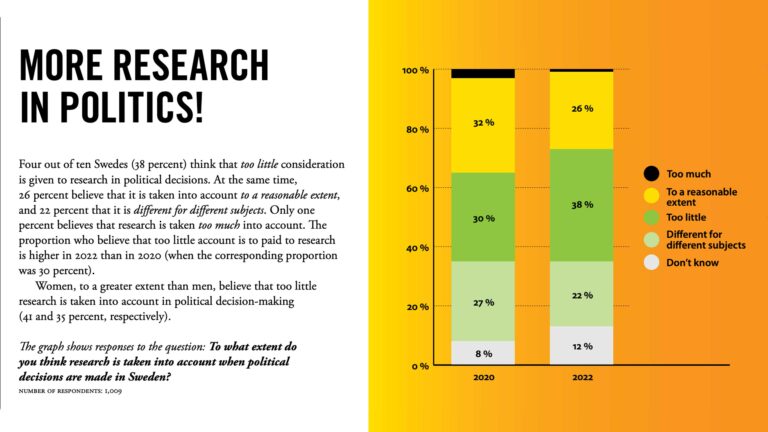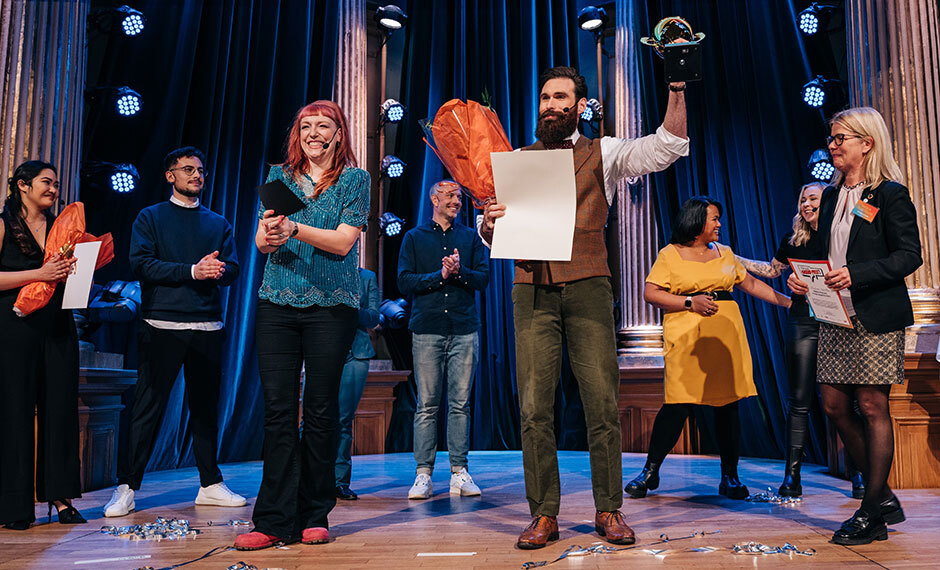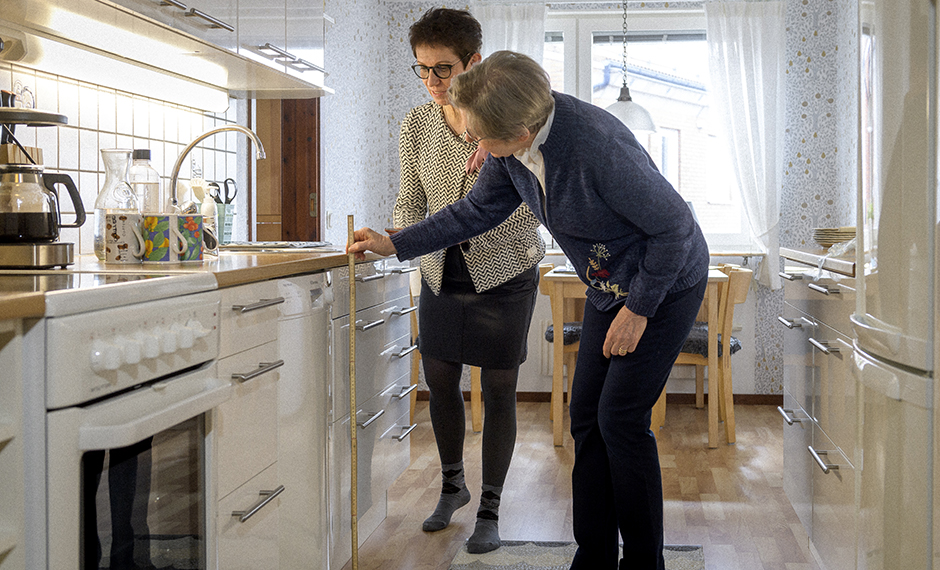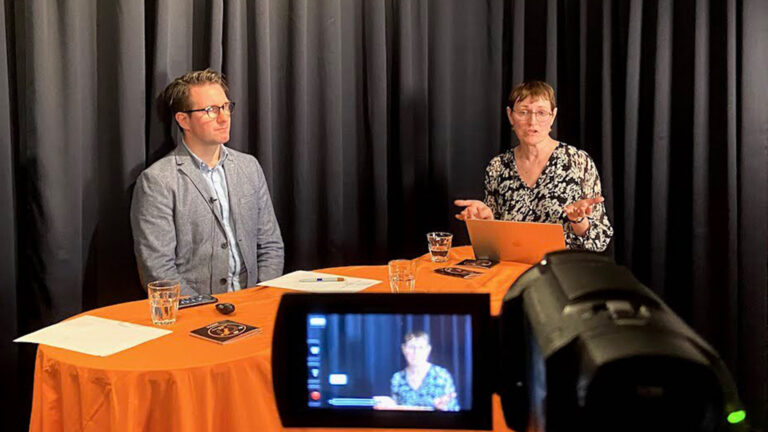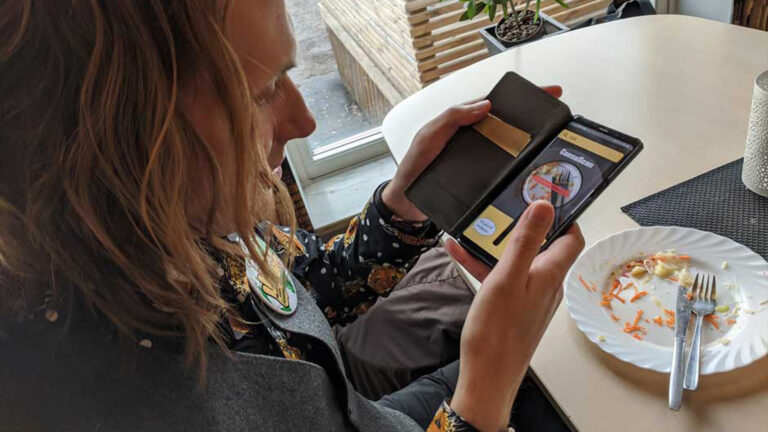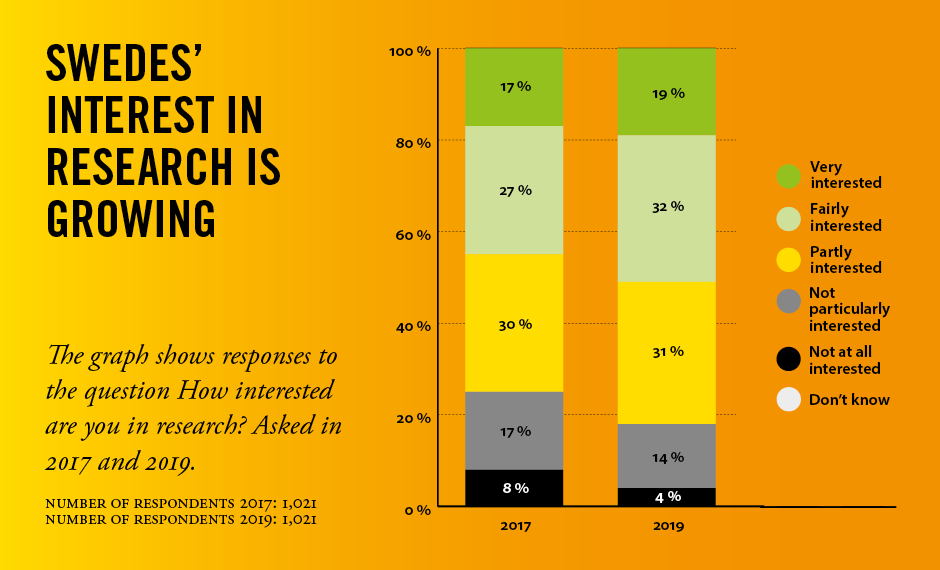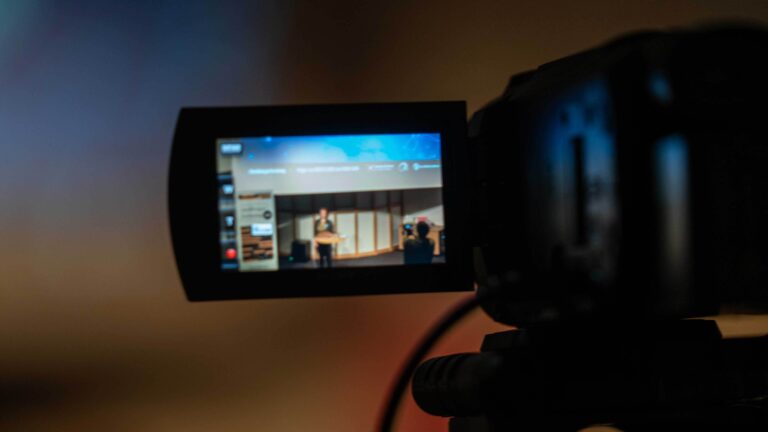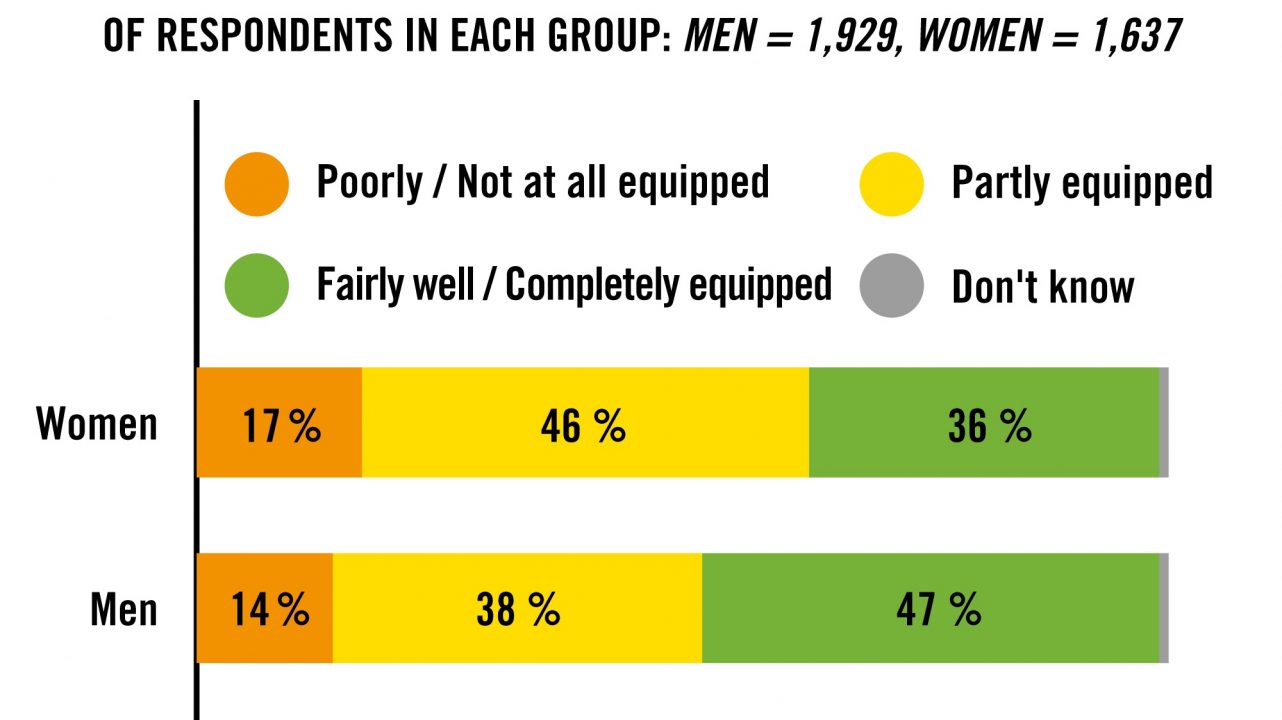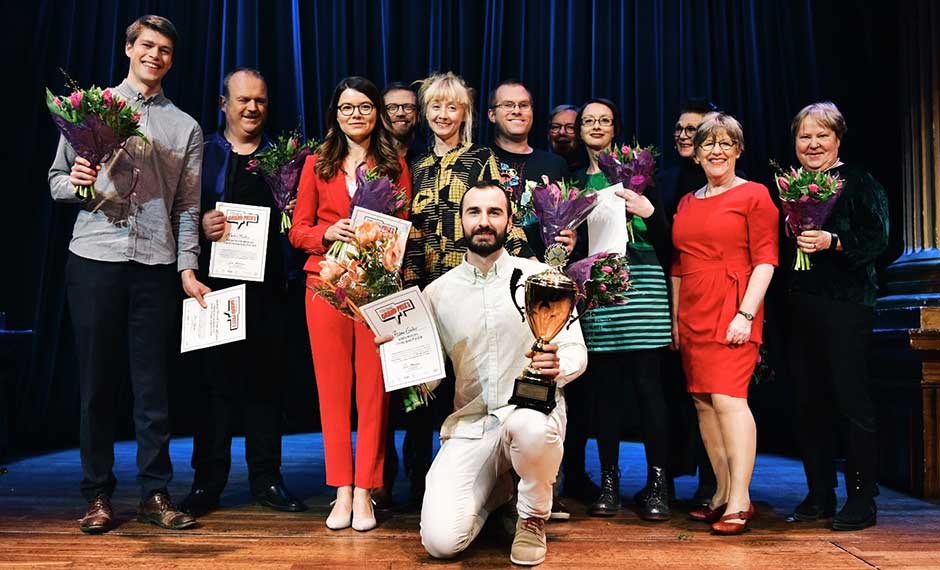Findings from Sweden’s largest plastic waste experiment now…
The Plastic Experiment is a nationwide Citizen Science project in which Keep Sweden Tidy Foundation, Public & Science Sweden and the University of Gothenburg have… Läs mer
Skapad:
2024-04-09Uppdaterad:
2024-04-08Cancer researcher named Sweden’s best science communicator 2023
Sofie Mohlin, a cancer researcher at Lund University, has won the 2023 Researchers’ Grand Prix. She earned the title of Sweden’s best science communicator at… Läs mer
Skapad:
2023-11-24Uppdaterad:
2023-11-24Swedes’ confidence in research at a record high
Swedes’ confidence in research is at a record high, and the majority believe that politicians used too few scientific facts during the Swedish election campaign.… Läs mer
Skapad:
2023-02-24Uppdaterad:
2023-02-24Social media researcher named Sweden’s best science communicator
Press release 26 November 2021 Michael Bossetta, a researcher in media and communication studies at Lund University has been named Sweden’s best science communicator. He… Läs mer
Skapad:
2021-11-26Uppdaterad:
2023-02-13How accessible is Swedish housing? Swedish pupils and…
Press release 22 September 2021 During September and October, Swedish school pupils, senior citizens and anyone interested will be investigating the environmental barriers that can… Läs mer
Skapad:
2021-09-22Uppdaterad:
2023-09-25VA Barometer 2021: Swedes’ confidence in researchers and…
Press release 1 February 2021 Swedes’ confidence in both research and researchers has increased. Nine out of ten Swedes have high confidence in researchers, while… Läs mer
Skapad:
2021-02-01Uppdaterad:
2022-12-16Swedish pupils to participate in research to reduce…
Press release 4 June 2020 Can more information result in less food being wasted? Researchers will be investigating this together with pupils and teachers across… Läs mer
Skapad:
2020-06-04Uppdaterad:
2022-12-19VA Barometer 2020 – Swedes’ interest in research…
Press release 4 February 2020 Fake news, knowledge resistance and alternative facts, all present challenges for science. But in Sweden, interest in research is increasing,… Läs mer
Skapad:
2020-02-04Uppdaterad:
2023-02-13Medical researcher named Sweden’s best science communicator 2019
Press release 27 November 2019 Keivan Javanshiri, a medical researcher at the Department of Neuropathology at Lund University has won the 2019 Swedish Researchers’ Grand… Läs mer
Skapad:
2019-11-27Uppdaterad:
2022-01-10“Lack of time greatest barrier to doing communication”.…
Press release 25 September 2019 Sweden’s researchers want to communicate more with the outside world but are hindered by both internal and external obstacles, according… Läs mer
Skapad:
2019-09-25Uppdaterad:
2023-02-20VA Barometer 2019 – Swedish public have high…
Press release 7 February 2019 A large majority of the Swedish public have high confidence in research and researchers. In addition, most Swedes believe that… Läs mer
Skapad:
2019-02-07Uppdaterad:
2022-01-10Cancer researcher wins Swedish Researchers’ Grand Prix
Press release 28 November 2018 A cancer researcher at KTH Royal Institute of Technology in Stockholm, Rezan Güler, has won the title of Sweden’s best… Läs mer
Skapad:
2018-11-28Uppdaterad:
2023-11-08
